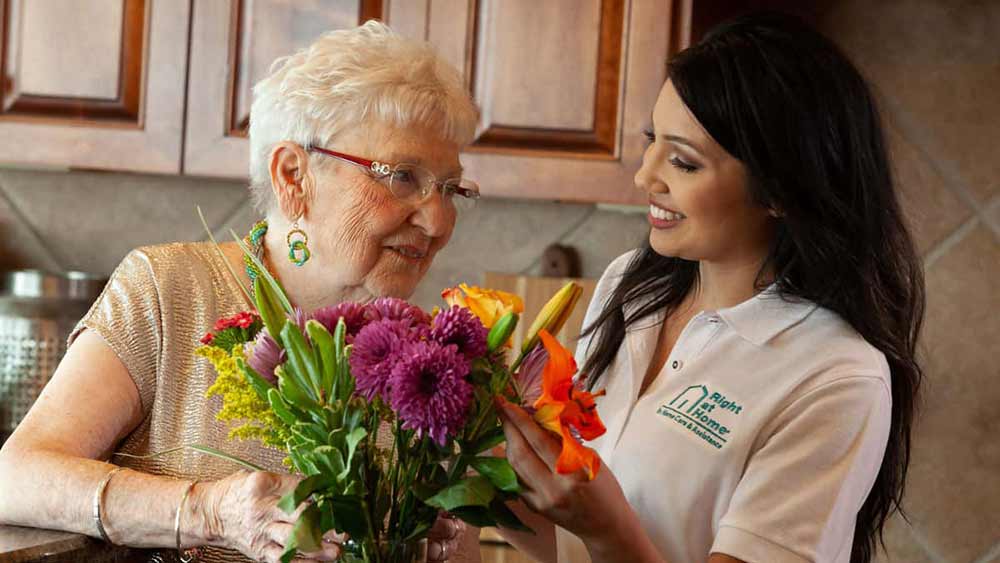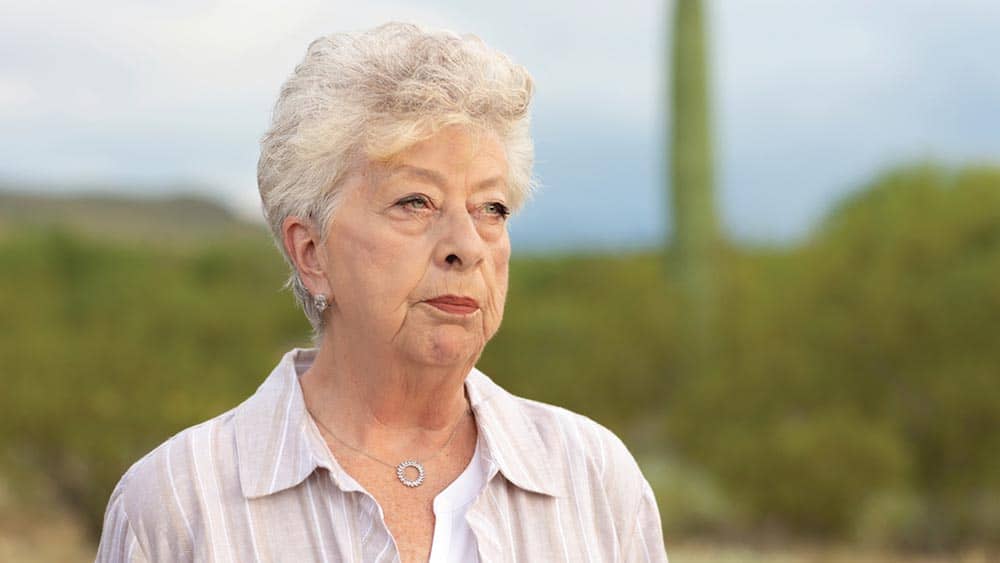

When Your Loved One Receives a Diagnosis of Alzheimer’s Disease
10 Tips From Family Caregivers
Are you providing care for a loved one who is living with Alzheimer’s disease or another cognitive impairment? The first thing to know is that you are not alone. Today, more than 5 million people in the U.S. are living with Alzheimer’s disease, and 16 million family members and friends are serving as their unpaid caregivers. These caregivers share your experiences and concerns, and they are a fountain of information. Here are things they can tell you:
1. Know you are valuable. According to a 2020 report from the Alzheimer’s Association, last year families in the U.S. provided an estimated 18.6 billion hours of unpaid care for loved ones with dementia — “a contribution to the nation valued at $244 billion.” Family caregivers are on the front lines of dementia care.
2. Learn all you can about your loved one’s condition. At first, there’s a temptation toward denial, but this is exactly the wrong approach. It could keep your loved one from accessing the best treatment and support services. Education also helps family understand and create appropriate solutions for personality changes in their loved one, such as agitation, wandering and aggression.
3. Plan ahead. Alzheimer’s disease cannot be cured, but the progression of the disease may be slowed by lifestyle changes. Early discussions allow the family to plan for the future while the person with dementia can still participate. It gives them the time to carefully choose the best possible care and quality of life options.
4. Address legal and financial affairs sooner rather than later. As your loved one’s abilities change, they will need help with financial and healthcare planning. Have these conversations early — they may not be easy. An aging life care professional (geriatric care manager), elder law attorney or your loved one’s financial advisor can help. Talk to your loved one’s doctor, also. Find more information about healthcare planning steps we all should take in the Right at Home blog.
5. Many resources are available. On the national, state and local levels, public and private agencies offer support services for the increasing numbers of Americans with dementia and their families. The sooner you know about these services, the better. It’s harder to make important decisions when the need is pressing. And it can provide peace of mind to know you’re creating a safety net. Here again, an aging life care professional (geriatric care manager) can be of great help.
6. Talk to family and friends. Some people delay disclosing an Alzheimer’s diagnosis, fearing the stigma that is attached to the disease. But if family and friends don’t know what’s going on, they might misinterpret changes in your loved one’s personality. You can serve as an ambassador, encouraging friends and family to continue to include your loved one, and share helpful information, such as the best time of day to visit, activities your loved one might enjoy, and how to best communicate.
7. Meet with other caregivers and families. Caregiving classes and caregiver support groups create an environment where it’s safe to share your feelings and experiences, and your tears and laughter. Today, there are more opportunities for both people with dementia and their family caregivers to spend meaningful time together with others in a nonjudgmental environment. Check out dementia-friendly Alzheimer’s cafés, arts programs and other gatherings.
8. Change your home as your loved one’s needs change. There are many excellent memory care senior living residences. But people with memory loss may do much better at home, in their familiar surroundings and with minimized disruption to their lives. Your loved one’s healthcare provider can recommend home modifications to make the environment safer and less confusing for your loved one.
9. Take time for yourself. Caregiving is hard work. Yet many family caregivers feel guilty taking time for themselves. Making time for your own needs is not selfish. It not only protects your health, but it also makes you a better caregiver for your loved one. Experts from Johns Hopkins Medicine say stress raises a caregiver’s own risk of dementia. Don’t neglect your own healthcare, your exercise routine, your yoga class, time with friends — the things that give you joy.
10. Bring in home care. If “take time for yourself” seems like an impossible dream, ask for help. This can include arranging for home care services. Professional home care allows family to focus on their careers and other family responsibilities. In-home care is available for a few hours of family respite each week, all the way to 24/7. It’s important to hire a caregiver from an agency that provides memory care training for its caregivers. Understanding the special challenges of dementia, these caregivers can assist clients with meals, dressing, toileting, bathing, transportation and exercise. They also provide compassionate companionship. Home care frees family to focus on their loved one and themselves as members of a unique, loving family, meeting challenges together.
As a charter member of the Alzheimer’s Association Dementia Care Provider Roundtable, of which members discuss key issues in Alzheimer’s care and support practices, Right at Home has been at the forefront of dementia care. Our caregivers have been certified in Right at Home’s RightCare Approach to Dementia and Cognitive Support, which has been recognized by the Alzheimer’s Association. The training focuses on three components: a person-centered care plan, the client’s current abilities, and the family’s informed involvement. Care that is focused on the individual and their abilities and that includes the family increases the quality of life for not only the client, but also their family.
Right at Home’s The RightCare Approach to Dementia and Cognitive Support is recognized by the Alzheimer’s Association® for incorporating the evidence-based Dementia Care Practice Recommendations in the following topic areas: Alzheimer’s and dementia, person-centered care, assessment and care planning, activities of daily living, and behaviors and communication. The Alzheimer’s Association statement of recognition is not an endorsement of the professional training or evaluation of the care provided by the facility.
Latest Resources for Seniors
Featured article








